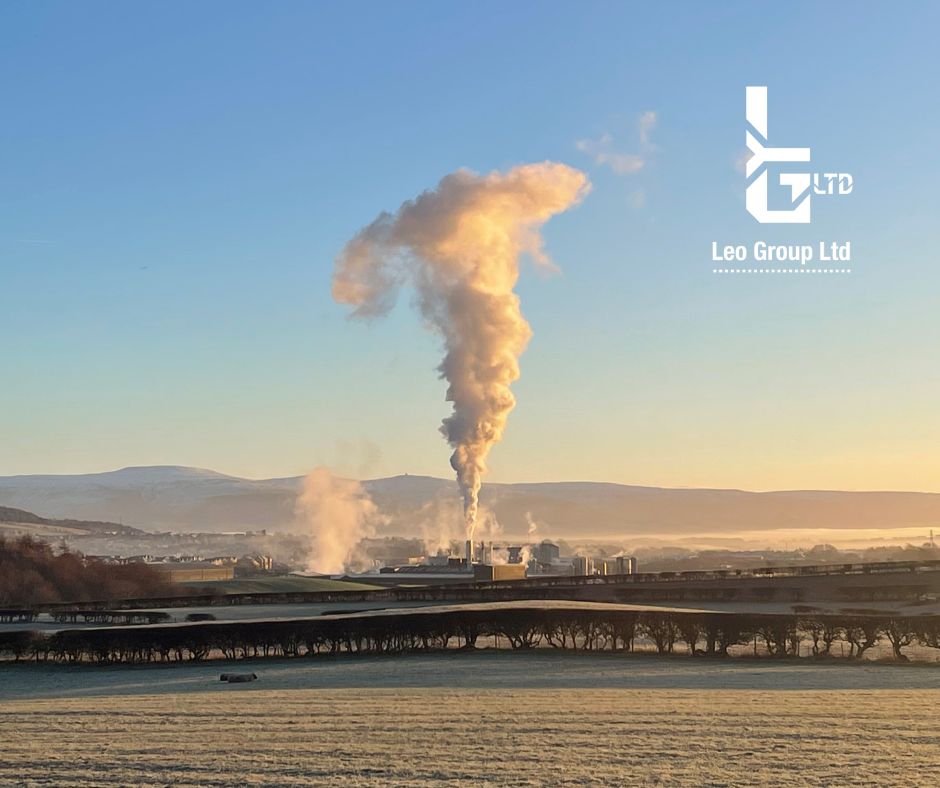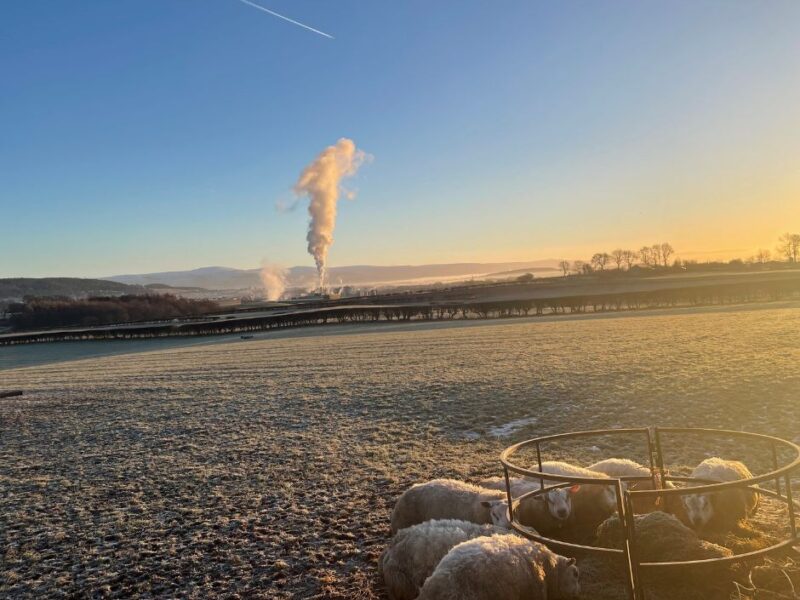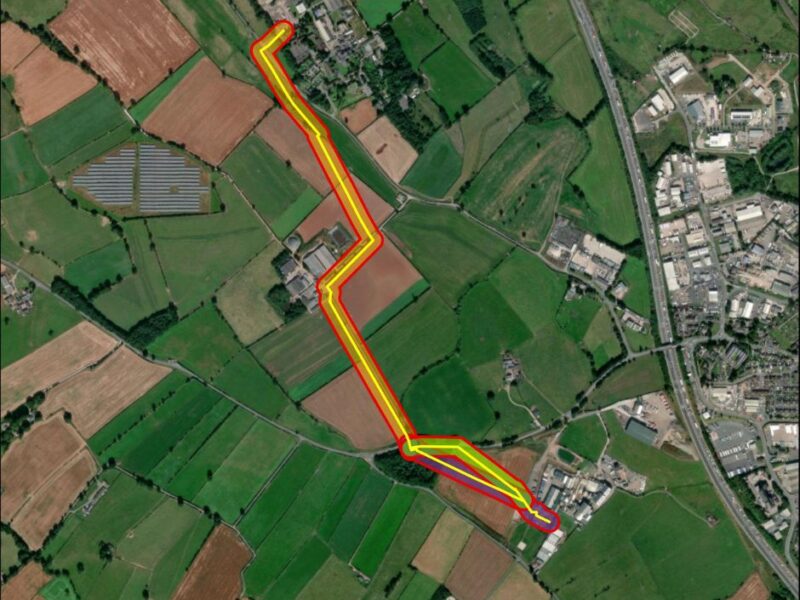
Omega Proteins Penrith commissions new multi-fuel thermal oxidiser
Leo Group is committed to investment and continuous improvement, using the best available techniques to ensure that high operating standards are continually maintained at all our sites. In doing so, protecting the environment, and reducing CO2 emissions are top priorities.
For odour abatement, we use state-of-the-art leading technology, that meets the requirements of sector guidance and best available techniques (BAT). As the primary means of odour control at all our animal rendering sites, we utilise thermal destruction of odours with thermal oxidisers for intense cooker odours and large biofilters to treat the indoor air of buildings.
In this context, we are pleased to announce that we have recently installed a new gas oxidiser as well as a new multi-fuel oxidiser as part of our ongoing site improvements at our Omega Proteins Penrith facility. These new and more efficient models replace the two older thermal oxidisers which have reached the end of their useful life.
The way thermal oxidisers work is relatively simple: Stronger airborne odours are extracted directly from the process equipment, and the odorous compounds are destroyed at temperatures of over 850°C. The de-odourised air is then released from the stack and the difference in temperature when it mixes with the cooler air results in the visible plume of water vapour.
However, operating a thermal oxidiser generally requires a significant amount of energy. Therefore, the units of the new gas oxidiser are designed to recover heat from the combustion chamber and use it to generate steam, which in turn feeds the production process. And the installation of the new multi-fuel oxidiser will allow us to continue our plans to decarbonise the production process by using proven technologies and a choice of sustainable fuels such as solid or liquid biomass (meat & bone meal and biofuel), which have already been used for years by many other industries and pose no health risks to humans or animals. The switch to renewable fuels is also in line with ISO14001 Environmental Management and ISO50001 Energy Management obligations and a legal obligation under the EU Emissions Trading Scheme.
This enables us to reduce the carbon emissions at our site, further working towards the goal of Net Zero certification. It also offers the possibility to generate electricity from surplus steam using a simple steam turbine. The electricity can then be reused on site to generate steam that is used in the facility’s production processes as part of our commitment to a circular economy.
The new multi-fuel oxidiser was commissioned on Tuesday 21 February after an installation period of two years in accordance with our environmental permit.




